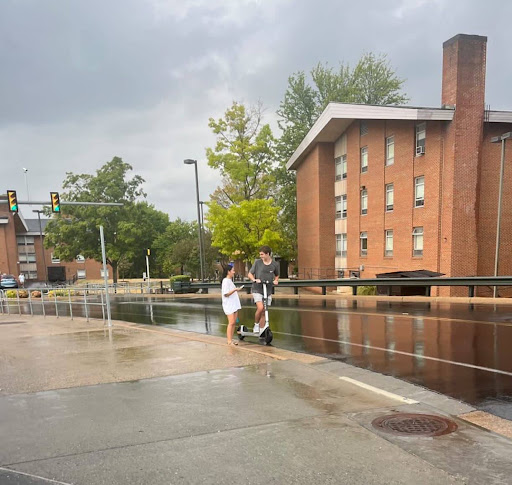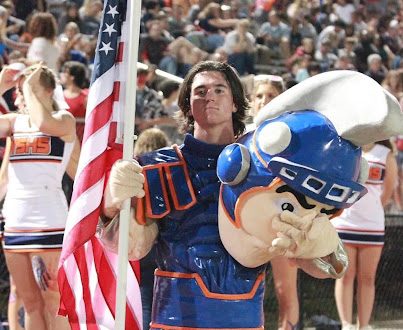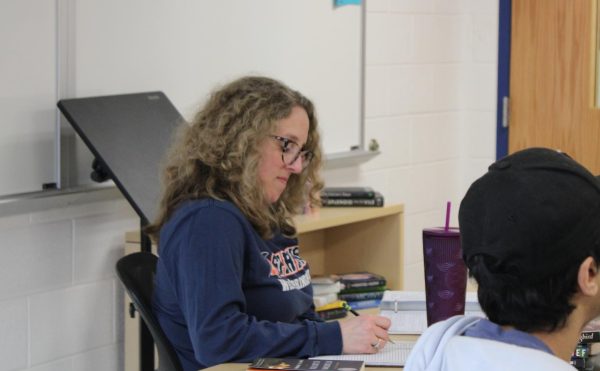Winter One Acts are one of a kind

Photo courtesy of @spartan_theatre on Instagram
The process that goes into producing the Winter One Acts is just as intricate as the musical or play, and spans several weeks of memorizing lines, dress rehearsals, and “tech week”, an often stressful time when the tech department hastily rehearses the light and magic.
While students see Spartan Theatre’s autumn play and spring musical, the Winter One Acts—a series of shorter, student-written and directed productions that occur annually—often go overlooked.
The first step of producing a One Act is writing, and scripts are mostly written by seniors themselves. While some may be dramas that contain deep underlying themes, others, such as junior Kaylee Wisner’s, are meant to just be comedic. The story of Wisner’s One Act, which was not intended to have any complexity to it, was conceived from a single sentence.
“I honestly had no inspiration. We got to day two or three of writing in class, and I still had no ideas, so I just typed some random words into a random document and asked for feedback. The words with the best response were, ‘Frat bro cursed to speak in iambic pentameter,’ and so I went with that,” Wisner said. “The rest of the plot came from a sort of internal monologue of, ‘What would be the stupidest thing that could happen right now?’ and that stupid thing happened.”
After the completion of writing comes the casting process, which runs from December to January. In December, a Google Form is released, allowing students to sign up to audition by performing two monologues (one dramatic and one comedic) of their choice. For sophomore Ashley Virts, who auditioned for a role, the audition process was extremely worrying.
“I [have to] go and find a dramatic and comedic monologue for the audition, memorize it, practice it repeatedly up until auditions,” said Virts. “I go in, and all of the writers and directors are there to observe [my performance]. It’s super nerve-racking because [the writers and directors] are just there staring at you and watching you [perform] these monologues.”
Shortly afterward, student directors will call back auditioners they saw potential for roles in their Acts. Once actors are casted, any anxiety over performing in front of their peers usually fades.
“It’s a lot of fun. It’s very chill because it’s not like you’re working with the teacher and 30 other people. It’s just you, the one other person in the scene, and the director. It’s low-stress and doesn’t have long hours until the two tech rehearsals,” Virts said. “I personally feel no stress or anxiety towards it because it provides a welcoming experience to anyone who wants to be in theater but [doesn’t] want to feel overwhelmed by the work or commit too much into it.”
Since the writers and directors of the Winter One Acts are different, different interpretations of the scenes create a creative outlet for the students involved with producing them. Wisner shared that seeing her script come to life was a great experience.
“Seeing my script directed is so insanely cool. For one, [senior] Thomas [Seeger] is a fantastic director, very engaged with the actors and with the play and has great ideas; but it’s more than that,” Wisner said. “It’s odd to find myself laughing at a joke that I wrote, but when these dynamic actors are doing it under equally directorial guidance, it becomes an entirely new, fresh joke. Writing, acting, and directing separate but interdependent arts and watching the pieces fit together is magical.”
The end result of all of these different crafts working together is a low-stress and fun series of performances that happen obscurely between the two main productions of the year.





